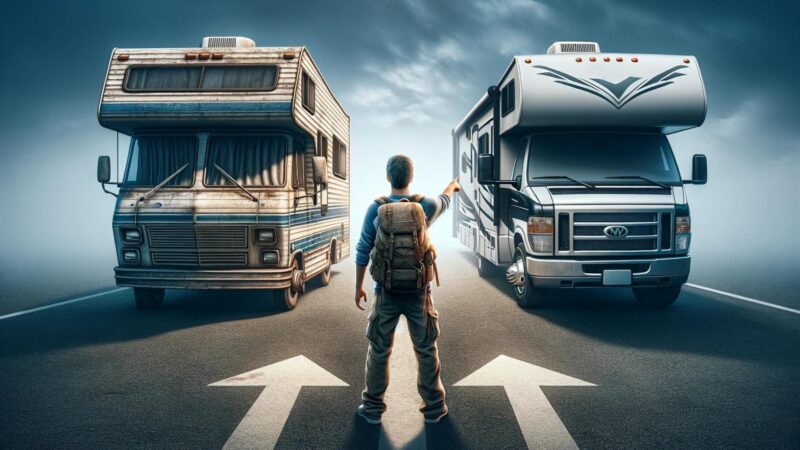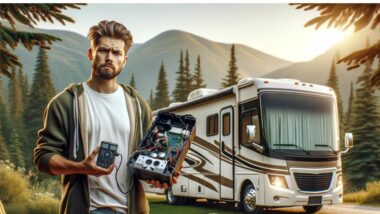Table of Contents Show
If you’re in the market for an RV, you might have asked around to discover if buying used or new is the better choice.
You’ll hear a wide range of opinions, including strong ones, from RVers who have had negative experiences one way or the other.
In general, RVers think older campers are better built, but that may not be enough for someone to choose used over new.
Let’s look at the benefits of both sides, and you can decide what’s right for you!
What Are the Benefits Of Buying A Used Camper?
The most significant advantage of buying an older camper is the cost. They’re usually much cheaper than new ones.
Used RVs have already taken the initial depreciation hit, which occurs in the first three years of ownership. If you buy an old camper, you won’t lose as much money if you turn around and sell it later.
Sometimes, older campers are built better. But you have to watch out for this generalization. You want to find a used RV that has been well cared for.
An RV that’s been sitting in a field for ten years may be a great deal, but do you want to deal with the potential problems that come with a rig that hasn’t been adequately maintained?
But overall, older RVs have a better reputation for quality and durability.
Finally, the initial kinks are often worked out if you buy a used camper. Even though you wouldn’t think there would be problems with a brand-new RV, every owner will tell you they’ve experienced issues with a new rig.
Maybe the refrigerator doesn’t cool properly. Maybe the leveling system is malfunctioning. Usually, owners who have taken good care of their RVs will have repaired these initial problems.
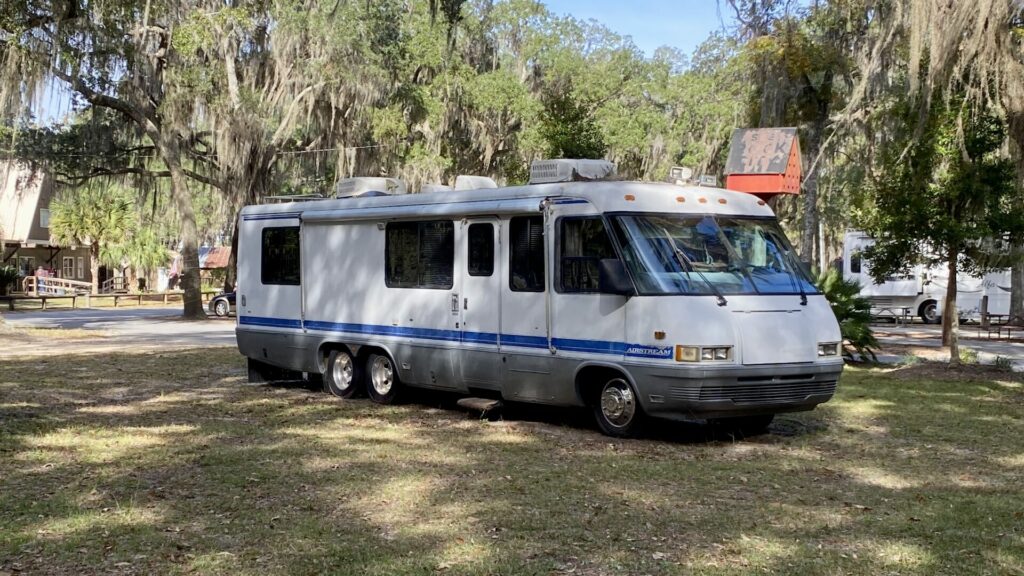
What Are the Benefits Of Buying A New Camper?
Don’t write off a new camper just yet. There are benefits to purchasing new ones as well.
First, new RVs come with a warranty. This coverage certainly helps when dealing with those initial repairs. If you plan on using your RV often, having a standard 1-year warranty that covers practically everything is a huge plus.
Sometimes, you can get better financing when buying a new RV. Dealerships offer financing in addition to private banks and loan centers.
When buying used, you usually have to come up with the entire amount upfront, whereas you might get by without even paying a down payment when buying new.
If you’re hurrying to buy a rig, buying a new one can be more manageable. It’s simple to just drive to a dealership and find an RV rather than scouring the internet for used options.
You don’t have to figure out financing, either. It takes less effort to purchase a new RV.
Finally, some people just like the overall look of a new RV. They don’t have to worry about cleaning up someone else’s dog hair or wiping the shower from someone else’s years of use.
They’re cleaner and usually go through a detailing process, so they look spectacular. The exterior is shiny and not faded. The roof is spotless and not green.
There’s something about buying a new car, new RV, or new house that can also make you proud.
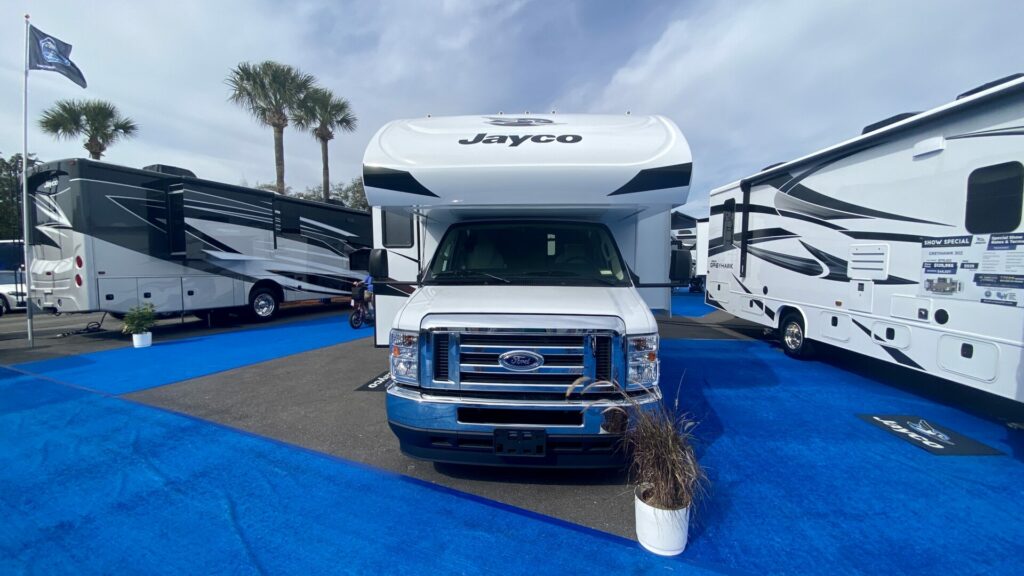
How Much Does A New RV Depreciate In the First Year?
We mentioned the depreciation factor earlier. Buying used avoids the big hit RVs take once driven off the dealer lot.
Typically, RVs lose 15-25% of their value in the first year. If you purchase a motorhome for $325,000, it will likely be worth less than $275,000 after the first year.
Some brands, however, suffer less depreciation. For example, a 2024 Airstream may sell for $100,000.
A year later, the owner may still be able to sell it for $90,000 because Airstreams maintain their value better than other RVs.
Pro Tip: Check out these 10 Important Facts to Consider Before Making Your RV Purchase.
Do Campgrounds Allow Older RVs?
Another thing to consider when buying an old camper is what campgrounds will allow you to make a reservation. Some RV resorts enforce something called the RV ten-year rule.
A converted skoolie may be an excellent rig for your needs. But you’ll find many places that won’t allow you to stay because of the type of RV it is and its age.
So think about where you want to travel and the types of campgrounds you want to stay in before choosing an older camper.
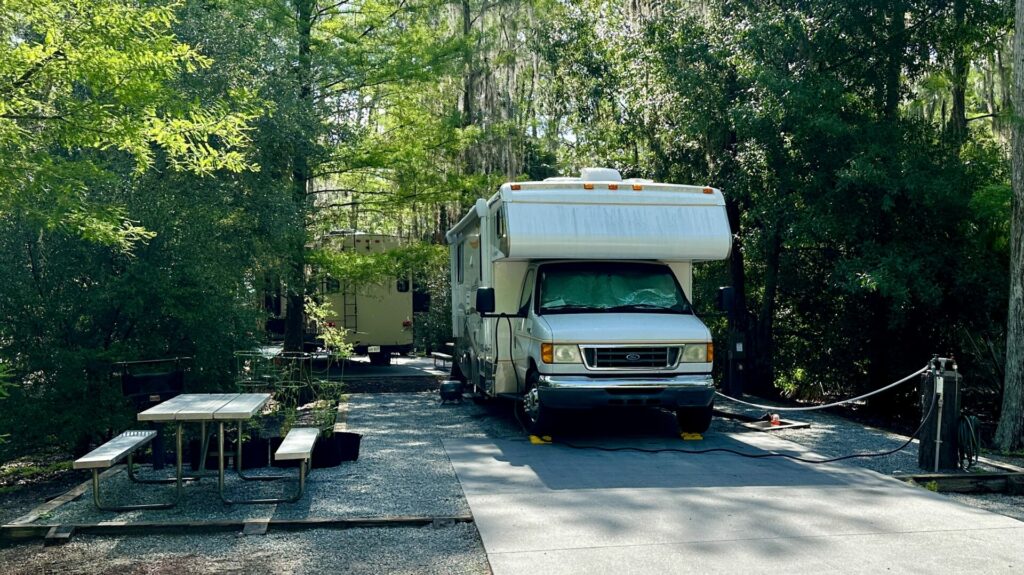
Do Both Used And New RVs Have the Same Problems?
We want to reiterate that you’ll have problems with your RV whether you buy a used or new one. Everyone has different experiences.
Some people will claim they’ll never buy new again because of all the initial repairs they had to make. Their rigs spent more time in the shop than they did in campsites during the first year.
Other people will claim they’ll never buy used again because of all the unseen issues. Previous owners may tell you everything is working and they’ve never had any problems. But plenty of RVers have bought used and regretted it because of the costly repairs to fix water leaks, roof damage, or structural issues.
If you have slide-outs, you’ll likely have to deal with malfunctions at some point, whether you buy new or used.
If you travel frequently, you’ll likely have to deal with loose pipes and water leaks, whether you buy new or used, just because of the amount of movement going down the road.
So, don’t think buying one or the other will limit the number of repairs.
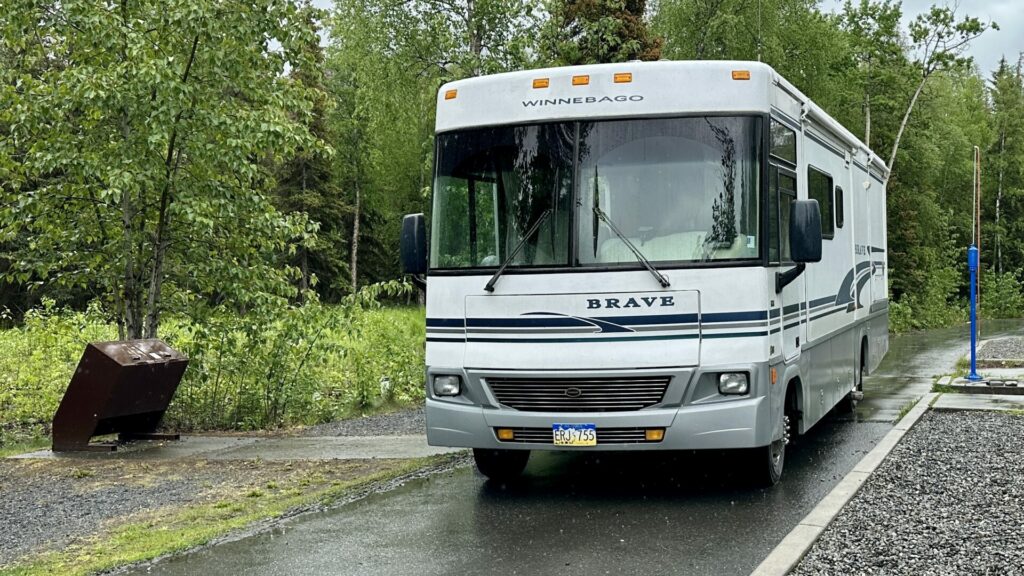
How Do I Know If New Or Used Is Right For Me?
So, the big question comes down to personal preference. Is a new or used RV right for you?
Is having a warranty and big deal to you? If so, you’ll likely need to buy new, although there are aftermarket warranties you can purchase. If saving money and finding the best deal is the highest priority, you’ll likely need to buy used.
Look closely at our list of pros for both new and used RVs. Then, consider the cons of each.
What matters most to you? We want you to have amazing adventures, so choose the best option for your situation. What will you feel most comfortable with?
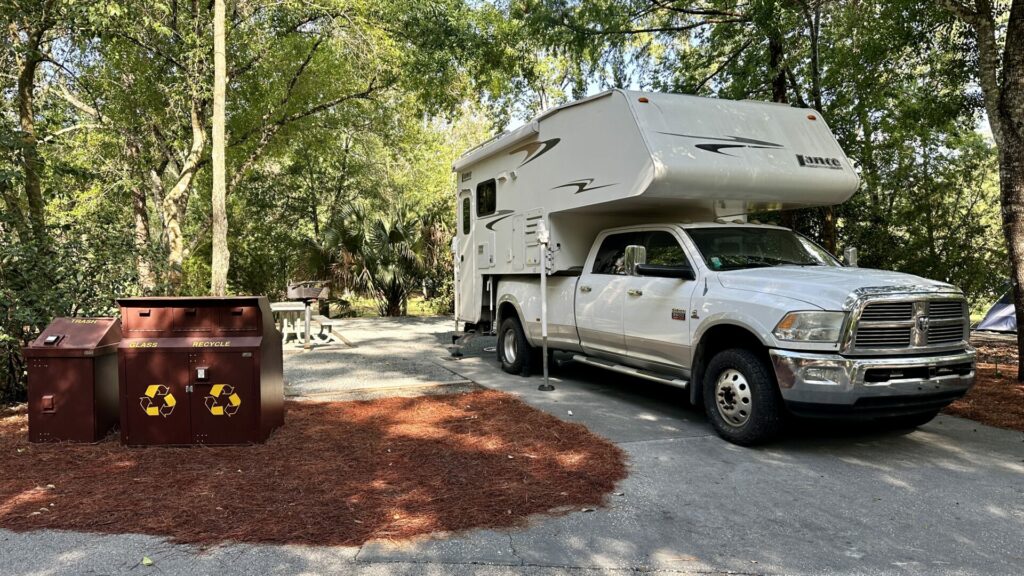
It Comes Down To Budget And Personal Preference When Buying An Old Or New Camper
Typically, there are two factors when choosing an RV.
First is the cost. If your budget is $50,000, do you want to spend $50,000 on an older toy hauler or $50,000 on a new travel trailer? If you prefer to buy a new motorhome, do you have the funds to do so?
The second is a personal preference. Would you just feel better in a new RV? Or would the monthly payments ruin your camping experience?
Would you rather spend less on an old camper and have the money to do repairs as needed, or spend more on a new RV and hope nothing major happens?
So, what works best for you? Are you leaning toward a used RV or a new one?




